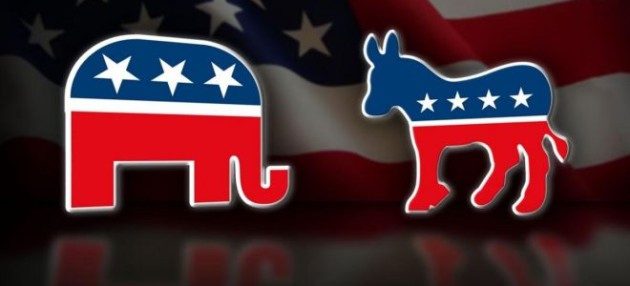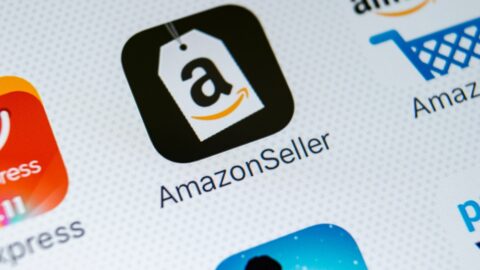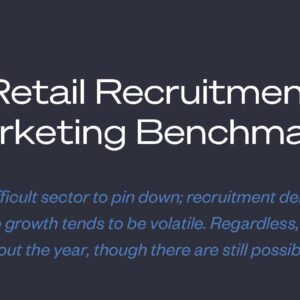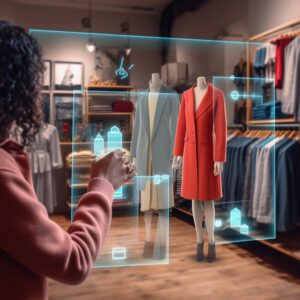It is election season — a time of both optimism and uncertainty. One must reach back several election cycles to match the intensity and tension of our current contest for American votes. Setting aside the prospect of hanging chads and multiple recounts, the American people will decide who their next President will be in November and, hopefully, have a confident outlook.
Of course, there are lessons to be learned from past and current political seasons and it is not much of a stretch to link politics to the retail industry. For retailers, it is always campaign season; they are constantly trying to win the approval of their customers. Retailers also know that Americans take political disruption seriously and vote with their wallets. Consider this: according to Pestle Analysis there are more than 20 political factors that affect business, including:
- Employment law
- Data protection law
- Healthcare law
- Competition regulation
- Regulation and deregulation
- Tax policy (tax rates and incentives)
Any one of these factors may seriously affect retail business, but a few leading concerns for retailers in 2016 include health care reform and mandates, both of which have become a major challenge for employers:
Advertisement
The costs associated with the Affordable Care Act mandates are so high that some retailers have chosen to stay under the 50-employee threshold to avoid being forced to cover those workers; others have cut workers’ hours so they won’t count as full-time employees.
A proposed $15 minimum wage mandate is possible for 2016, and it’s already in place in California for the near future. Will retailers reconsider hiring more employees if the minimum wage increases substantially? Will they intentionally shrink their workforce? How will all this affect customer service and revenue?
Brick-And-Mortar’s Death, Taxes And Donations
While health care issues are top-of-mind these days, tax issues are a constant headache. And brick-and-mortar retailers are at a particular disadvantage when it comes to tax challenges, according to the National Retail Federation (NRF), which recently stated that America’s sales tax system unfairly favors online retailers. E-Tailers are not required to collect sales tax on most sales. With sales tax rates reaching 10% in some regions, Main Street retailers are feeling the pain.
But retailers with deep pockets may be able to steer a healthy amount of favoritism their way. According to a demos.org report, Walmart, Costco and Home Depot have given tens of millions of dollars in campaign contributions to both sides of the aisle, and have yielded legislative returns concerning issues like taxation, health care coverage and unionization rights. While this is good for the businesses in terms of profits, it is typically bad for employees and may be damaging to customer perceptions.
Aside from being affected by (and sometimes financially influencing) the political climate, retailers also can learn tremendous lessons and gain valuable insight from peers in the political arena. Here are seven lessons that are perhaps the most relevant:
Lesson 1: Separate The Brand From Personal Beliefs
Retailers know that when C-level executives’ personal beliefs are made public, customers’ perceptions of the brand may change and generate publicity most companies would not seek.
In the last decade:
- Target contributed $150,000 to a political group that backs pro-business candidates in statewide races, including a candidate for governor who opposes same-sex marriage. Demonstrations and petitions for a boycott followed.
- Chick-Fil-A’s CEO came out against same-sex marriages. LGBT supporters quickly staged “kiss-ins” at multiple locations.
- Both Hobby Lobby and Eden Foods CEOs have used their financial power to support religious and pro-life causes that have triggered boycotts and threats to discontinue to stock and supply products to both retailers.
- Lands’ End removed and apologized for an interview with Gloria Steinem published in its catalog. This created a social media backlash from those who saw the apology as an affront to women’s rights.
- Recently, Starbucks, no stranger to controversial politics, ran two full-page ads in the New York Times and the Wall Street Journal calling for America to rail against divisiveness and remember to foster unity.
It may be wise for retail executives to keep their political beliefs and connections obscure. Keep customers apprised of political consciousness, but remain neutral. Encourage shoppers to vote, but don’t say for whom; maintain that everyone is a winner. Distance brands from opinions, since it is not always easy to square beliefs with business goals.
Lesson 2: Personalization: How To Win Sales And Influence People
Politically, it is hard to have all voices heard. But it is possible for a retail brand to connect to its customers better than any politician ever dreamed of reaching his or her constituents. Customers can be heard through social media feedback, creating a direct dialogue with their favorite stores and brands. Doing so not only makes existing customers feel valued, but leverages their loyalty to drive business. True personalization is the key.
Personalization can be strengthened with big data and analytics, which give retailers the ability to target and personalize marketing campaigns based on granular data about customer behavior, lifestyles and preferences. But it is important to remember that those trackable dots on your platform are people: Treat your customers as the humans they are rather than a group of metrics or analytics that can lead to revenue.
Doing personalization right yields results: as many as 75% of shoppers said personalized promotions would encourage them to purchase relevant products, according to a global cross-industry study commissioned by Mindtree.
Lesson 3: Be Solid And Authentic
As most candidates tend to flip-flop on their views and provide countless moments of doublespeak and non-speak, retailers need to be the rock solid foundation where a shopper can find solace. Rather than spout divisive messages that focus on exclusion and separation, send out positive messages through social channels and marketing campaigns that unify your customers. Make them feel like they are part of something special.
As several major retailers, including Kohl’s and Sports Authority, have announced store closings and bankruptcies this year, it may appear to shoppers that their entire world is changing, and not necessarily for the better. A solid loyalty program or incentive-based subscription model might remind customers that your brand is modern and will endure. In a time when 96% of adults and 95% of teenagers engage in retail therapy, consumers are not snapping shut their pocketbooks; they are shopping to feel good.
In addition to giving your customers what they want, when they want it, it is also necessary give them something experiential. Shoppers are looking for meaningful engagements that politics typically cannot deliver. Here are some presidential candidate lessons from B2B marketers that retailers can take to the bank:
- Don’t belittle competitors;
- Understand your buyers’ needs; and
- Be authentic.
“A study from HotWire PR concluded that marketers are no longer focusing on audience age in their marketing campaigns,” wrote Brian Anderson, News Editor of Demand Gen Report. “Instead, they are looking to focus on their audiences’ passions instead of their age or location.”
Lesson 4: Treat Employees Right
It is always the right time to make employees feel valuable. Employees who feel their voices are unheard at work are less likely to work harder or contribute more. Even a small gesture on a retailer’s part could pay off handsomely. Not surprisingly, some of the most successful retailers have embraced this ideology and are going above and beyond:
- The Container Store pays its in-store sales associates an average of $50,000 per year;
- Zappos gave its entire workforce a vacation on Leap Day in 2016;
- The Wegmans Employee Scholarship Program has awarded more than $100 million in scholarships to more than 32,000 employees since 1984.
In exchange for this goodwill, these retailers experience improved employee loyalty. Remember that you are the influencer of your employees’ working world and want them to succeed for the benefit of your company.
Lesson 5: Always Deliver The Goods
In politics, you can’t always get what you want. In retail, it is essential that shoppers receive exactly what they want, when they want it. One of the most important ways to achieve customer delight is by getting products to them at the time and place they desire. Enter in-store order fulfillment: Enable your customers to use your physical stores as fulfillment locations. Make sure they know that your stores are go-to locations to complete any purchase.
According to the Forrester report, “Nailing In-Store Pickup,” more than half (53%) of the more than 3,000 online U.S. adults surveyed say they expect notification in two hours or less that orders are ready for pickup. In addition, at least 60% of customers expect omnichannel services. Customers expect simple and seamless processes not only for receiving the products they’ve purchased but also for returning products.
Lesson 6: Mind Your Millennials, Mobile And Social Media
Retailers are becoming more aware that Millennials are connected and socially responsible, with a collective $200 million hole burning in their pockets. And for the first, or maybe second, time they are voting. Make them realize that you are conscious of the issues they are concerned with. Provide sourcing information about your products. Connect with Millennials on social networks. Maybe even poke a little fun at political wheelings and dealings and position your brand into an “us against them” stance. And remember, everything should be done seamlessly on mobile devices.
Lesson 7: Tax Increases On The Horizon? Give Shoppers A Break
When it comes to proposed or imminent tax increases, retailers know that shoppers will decrease spending. If there are going to be tax increases implemented, massive or otherwise, let your customers know that you are going to give them the break they deserve. For example, when the demand for luxury goods slows down, as Restoration Hardware’s disappointing Q4 2015 results and 23% stock dip showed, it is vital to give shoppers an honest deal.
It’s true that most potential shoppers will shy away from any unnecessary purchases in rough economic times, and 70% will abandon an e-Commerce cart for any reason, but you can send the message that not everything in their lives has to be a money-grab. Let your shoppers know that and they will reward you.
The Votes Are In
When it comes to politics the only thing certain about the future is uncertainty. Any of the aforementioned political factors certainly have long-ranging implications for retailers, employees and customers alike. But the lessons from politics are clear. Customers may not be able to fight city hall, but no matter what, they can be heard by you. Customer service, not social issues, are the keys to retail success. In these uncertain times, it is important for retailers to give their customers and employees a place to clear their minds, work with a purpose and vote to spend some of their hard-earned money.









